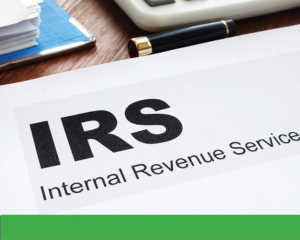IRS Offers ERC Settlement Offer – Should You Take It?
 Based on an internal survey, my company has found that over half of dentists have claimed the Employee Retention Tax Credit (ERC), with some claims exceeding $200,000. We estimate that up to 35% or more of these claims could be fraudulent, especially claims filed for tax year 2021. (See my December 2023 AGD Impact column, “Finding the Truth in the Controversial Employee Retention Tax Credit,” for more information.)
Based on an internal survey, my company has found that over half of dentists have claimed the Employee Retention Tax Credit (ERC), with some claims exceeding $200,000. We estimate that up to 35% or more of these claims could be fraudulent, especially claims filed for tax year 2021. (See my December 2023 AGD Impact column, “Finding the Truth in the Controversial Employee Retention Tax Credit,” for more information.)Since Dec. 1, the IRS has sent 20,000 letters to taxpayers denying their ERC claims and plans on sending 20,000 more for tax year 2020. Meanwhile, it continues to ramp up efforts to audit claims for tax year 2021. The IRS is pursuing both civil and criminal penalties for promotors, and audits are expected to ramp up for taxpayers. For dentists who have filed and received payments for credits they no longer believe they qualify for, the IRS has introduced the ERC Voluntary Disclosure Program (VDP).
Under the VDP, taxpayers will only be required to pay back 80% of any ERC funds received and deposited. The IRS will allow any participating taxpayers to keep 20%, since many of the promotors took a cut of the credit to file on their behalf. For taxpayers who apply and are approved, the IRS will waive any penalties and interest as long as the taxpayer agrees to sign a closing agreement and disclose the details of any advisers who helped them file their claim.
I recommend that impacted dentists talk with their certified public accountants to discuss their options. Any dentists who did file erroneous claims should take advantage of the VDP in order to eliminate penalties of 25% (or greater) and interest while still keeping 20% of the credit to the extent it was not paid to a third-party promotor. Make sure to talk with your CPA soon — the deadline to apply is March 22, 2024.
Wes Lyon II, CPA, CFP, is president and CEO of McGill and Lyon Dental Advisors. He is the AGD Impact Financial Management columnist.
